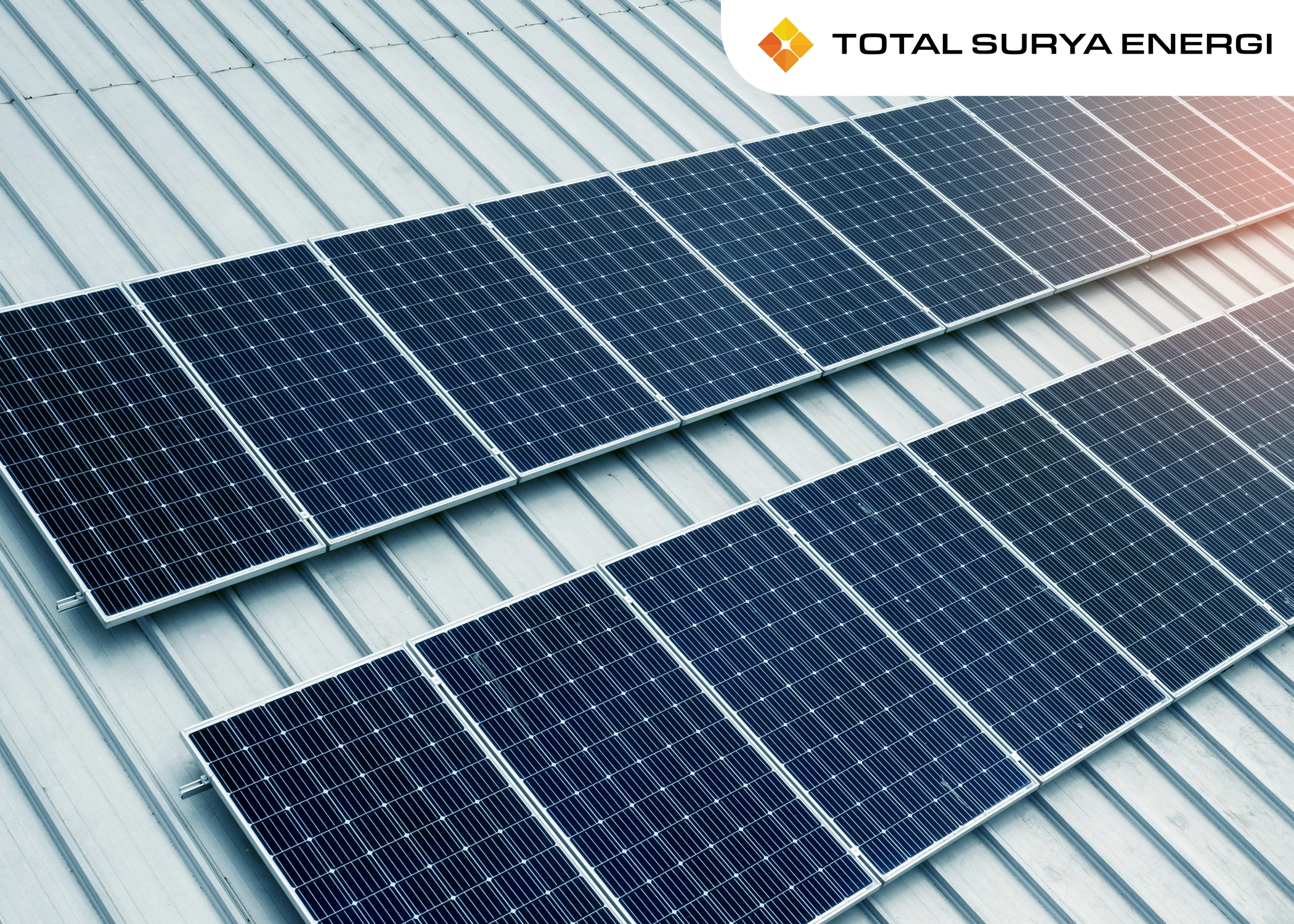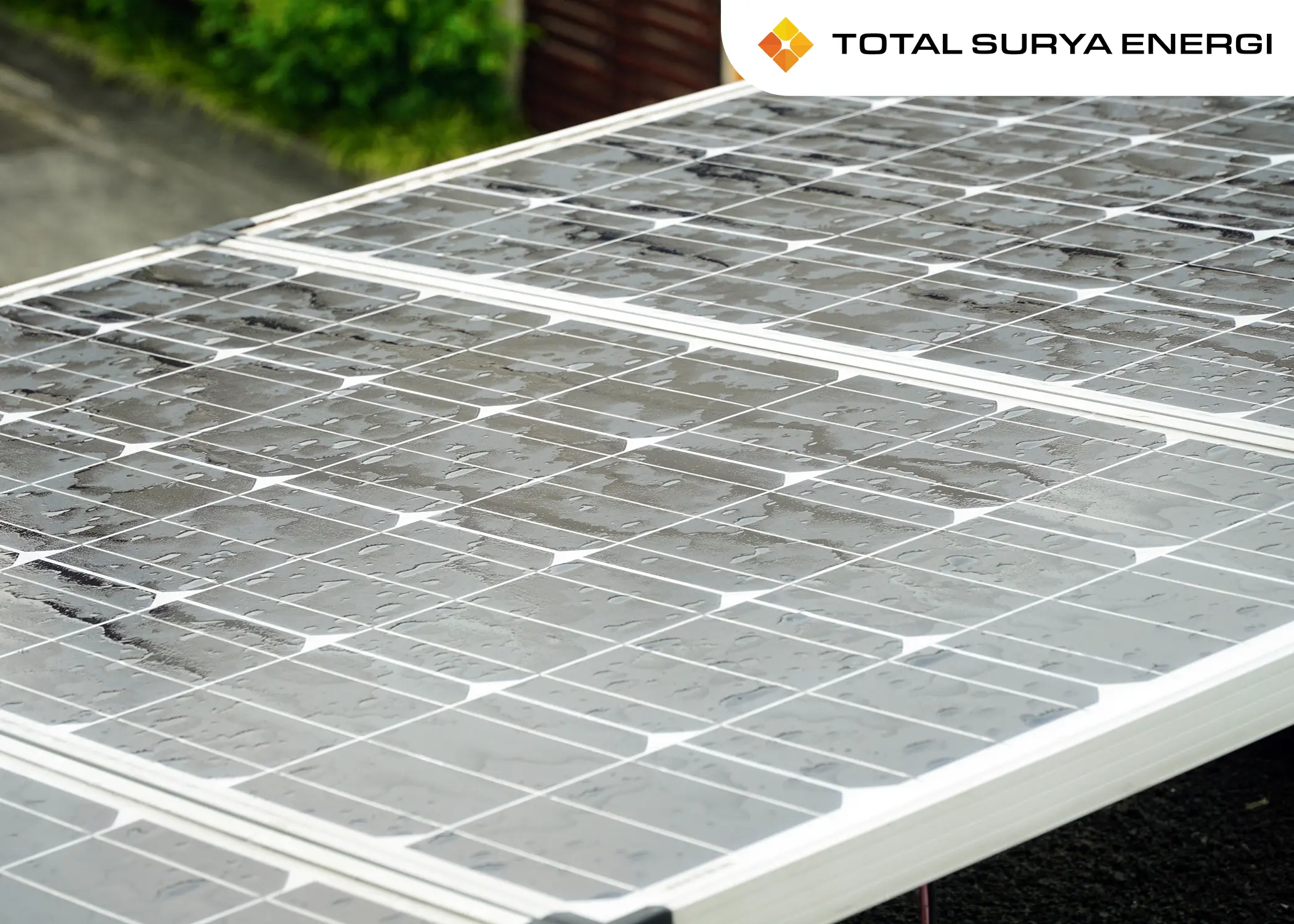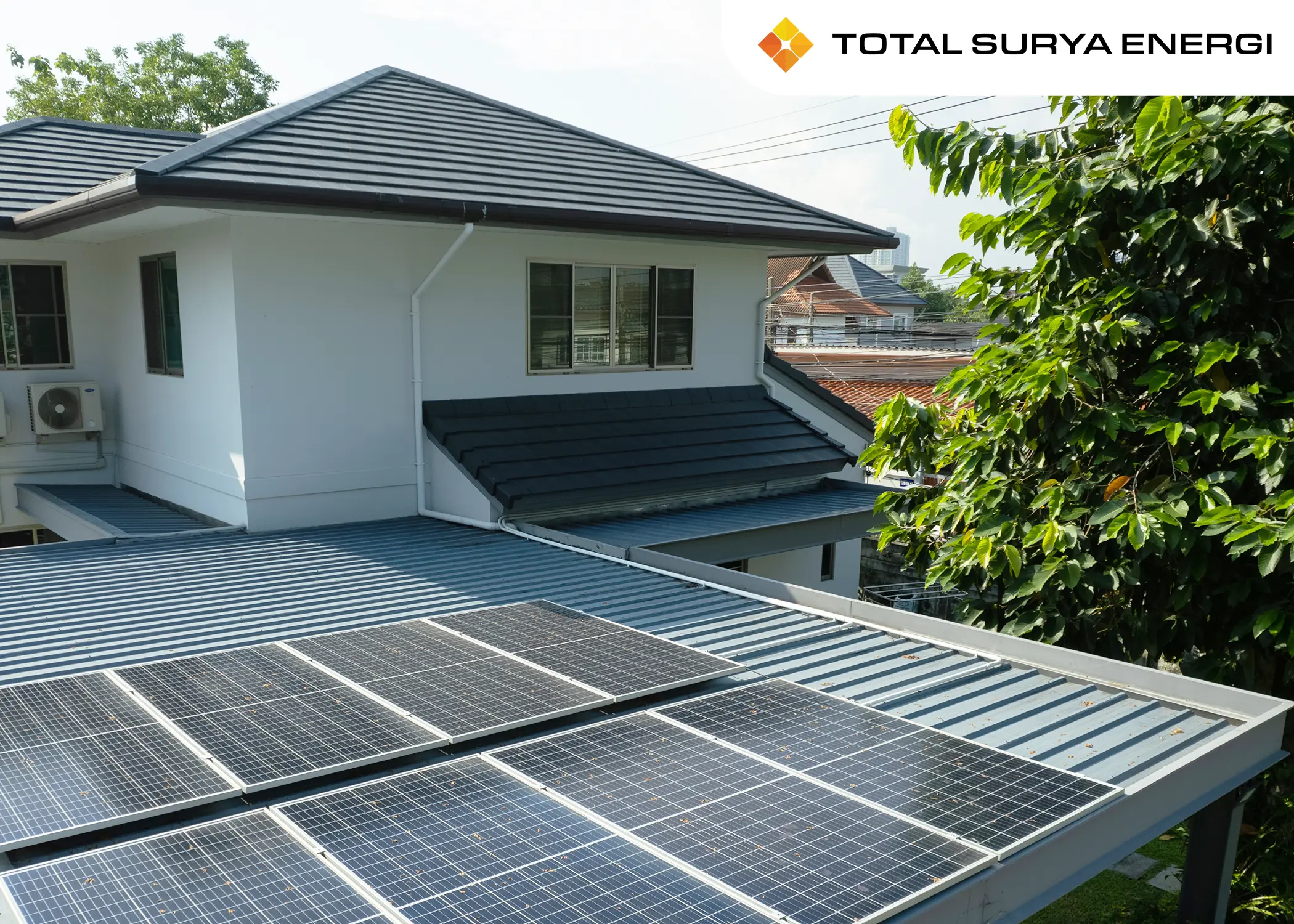Introduction
The transition toward renewable energy and the evolution of energy systems are increasingly recognized as vital energy imperatives for humanity. The year 2025 marks a turning point in how nations, including Indonesia, strategize and harness energy resources to ensure prosperity, sustainability, and equity for future generations. Companies such as Total Surya Energi are at the forefront of this transformation, offering innovative and comprehensive solutions designed to meet diverse energy needs while fulfilling global ambitions for sustainable development. Understanding the trajectory, challenges, and opportunities of vital energy resources is pivotal for stakeholders, ranging from policymakers and energy professionals to academics and the general public.
The Vital Role of Energy in Societal Advancement
Energy stands as the bedrock of social evolution, industrial progress, and economic growth. The importance of vital energy resources cannot be overstated: from electrifying homes and schools to powering industries and technological breakthroughs, energy underpins nearly every facet of modern life. Rapid population growth, intensified industrialization, and heightened urbanization have triggered unprecedented energy demand in Indonesia and across the globe.
Consequences of Energy Deficits
Without adequate access to vital energy resources, communities endure limited economic prospects, educational deprivation, and diminished health outcomes. Addressing energy disparities is thus a moral and economic imperative. The journey toward energy sufficiency now traverses local, national, and global dimensions, requiring collaborative solutions and innovative policies.
Renewable Energy: The Cornerstone of a Better Tomorrow
Renewable energy sources-solar, wind, hydro, and geothermal-are no longer supplemental choices but strategic priorities. Global and Indonesian trends demonstrate that these resources now command increasing shares of national energy mixes. Solar energy, in particular, has witnessed exponential growth, courtesy of technological advancements and declining costs.
Indonesia: Energy Transition Landscape
Indonesia, while rooted in fossil fuel use, is shifting rapidly toward renewables. The government targets 76% of new generation capacity from renewable sources under the Electricity Supply Business Plan (RUPTL) 2025–2034. This is a direct response to international obligations, societal demand, and the imperative to safeguard the nation: environmental future.
Regional Achievements and Challenges
Significant progress is evident in several provinces, with South Sumatera surpassing its renewable energy targets, while others such as Aceh and NTT require strategic intervention and financing to bridge infrastructural gaps. Technology transfer and financing remain critical barriers, but the general trajectory signals promise for energy inclusivity and sustainability.
Total Surya Energi: Vision and Mission for 2025
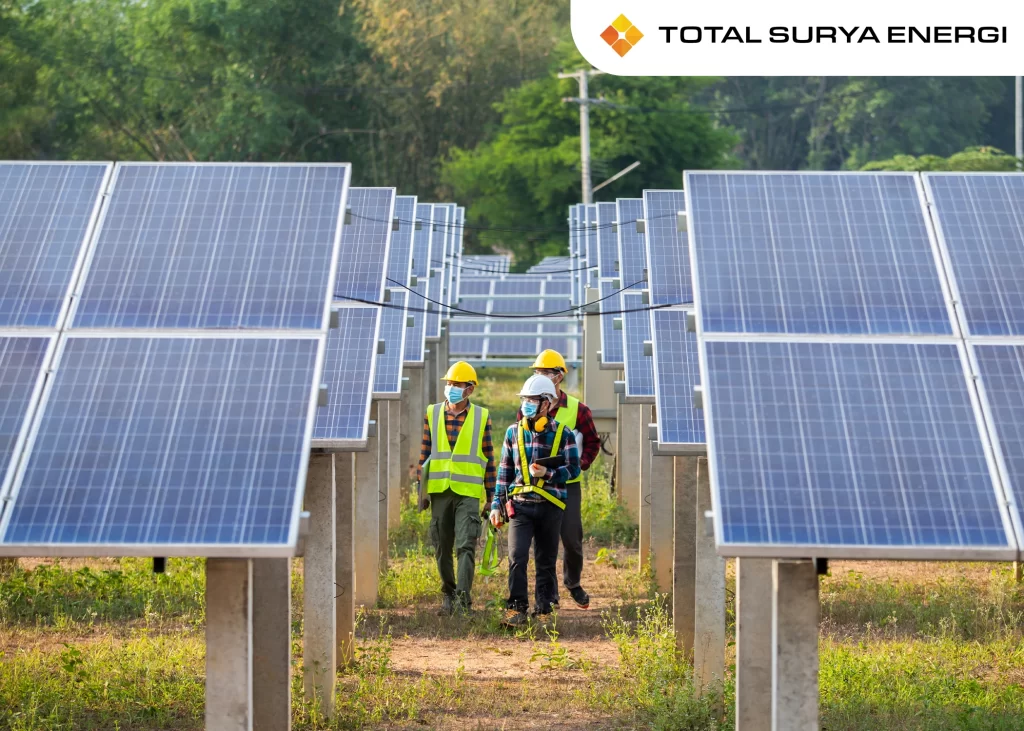
Company Overview
Total Surya Energi (PT Surya Energi Indotama, SEI) is a linchpin in Indonesia: renewable energy sector. Founded in 2007 and integrated as a subsidiary of PT Len Industri (Persero) since 2009, SEI commands a reputation as a pioneer and trusted innovator, specializing in solar energy and new renewable energy solutions.
Vision for 2025
SEI aspires to be the Total Solution Leader in renewable energy and energy conservation, providing tailored services for diverse user needs. The company upholds principles of trust, continuous learning, inclusivity, national interest prioritization, and synergistic cooperation-values integral to its growing impact and innovation.
Strategic Pillars and Objectives
The company: 2025 Work Plan and Budget (RKAP) centers on five pillars: market repositioning, corporate branding, operational excellence, advanced enterprise resource planning (ERP) systems, and optimized human capital development. These pillars support SEI’s objectives for growth, industry leadership, and stakeholder welfare.
Innovations in Vital Energy Solutions
Solar Energy Leadership
SEI has demonstrated formidable expertise across small to large-scale solar installations, leveraging state-of-the-art technology and EPC (Engineering, Procurement, Construction) competencies. The organization champions integrated energy conservation solutions-crucial for advancing Indonesia: solar footprint.
Digital Transformation and Operational Efficiency
Innovation at SEI is driven by digital transformation initiatives aimed at improving service quality, fostering product innovation, and streamlining operational efficiency. These efforts include ERP system reimplementation, data-driven decision-making, and enhanced risk management aligned with Good Corporate Governance principles.
The Significance of Vital Energy in the National and Global Context
Economic Impact
Investments in vital energy strengthen Indonesia: competitiveness, create jobs, and foster economic resiliency. The renewable energy market in Indonesia is projected to grow at a compound annual rate exceeding 21% from 2025–2033, indicating robust investor and stakeholder confidence.
Local Content and Manufacturing
National strategies emphasize the localization of renewable energy component manufacturing, reducing import dependence, fostering domestic industry, and generating employment opportunities for Indonesians.
Social and Environmental Benefits
Adopting vital energy solutions contributes to improved health outcomes by reducing air pollution, augments energy access in underserved communities, and supports Indonesia: climate commitments to achieve net-zero emissions by 2050.
Stakeholder Engagement: Collaborative Pathways to Success
Government Policies and Incentives
Strong government policies underpin the rise of renewables in Indonesia. These include streamlined regulatory processes, incentives for energy developers, clear renewable energy targets, and international cooperation for technology and investment transfer.
Community Initiatives and Public Awareness
Increasing public awareness and community-based projects are amplifying demand for vital energy resources. Citizen-led initiatives, educational outreach, and localized energy cooperatives are catalyzing the transition toward clean energy futures.
Academic and Research Contributions
The role of academia and research institutions is central to the evolution of vital energy solutions. Cutting-edge studies on energy efficiency, advanced photovoltaic technologies, grid integration, and socio-economic impacts enhance the collective knowledge base and inform industry best practices.
Technology and Innovation: Paving the Future
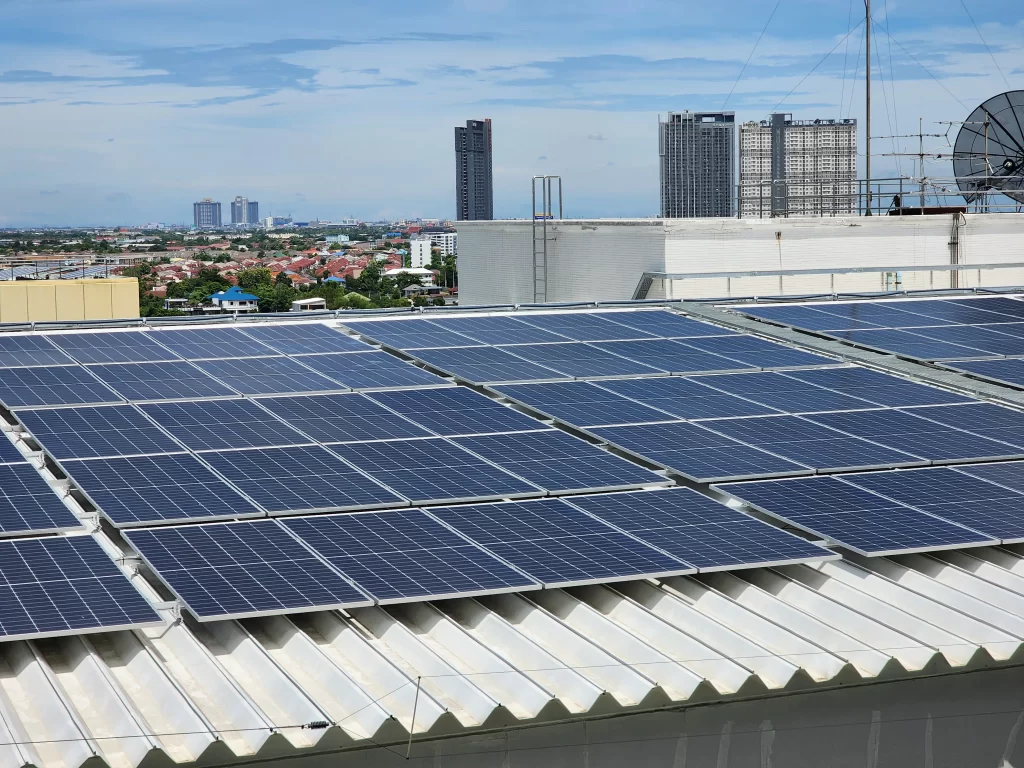
Solar and Wind Expansion
2025 will see large-scale deployment of solar photovoltaic farms and the advent of floating offshore wind projects, both of which are critical in addressing intermittency and scaling up clean energy generation.
Energy Storage and Grid Modernization
Advanced energy storage systems and smart grid technologies will be integral to managing the variability of renewables, enhancing reliability, and supporting effective grid integration across Indonesia: archipelago.
Industry 4.0 and Data-Driven Optimization
Digitalization, involving AI and IoT-based energy management, empowers companies like Total Surya Energi to optimize resource deployment, maximize operational output, and enhance sustainability metrics. Embracing these technologies is essential for future-proofing the energy sector.
Barriers and Solutions for a Vital Energy Future
Key Challenges
- Infrastructure Gaps: Many regions lack adequate grid infrastructure to absorb intermittent renewable generation, necessitating substantial investment and upgrades.
- Financing Constraints: Access to competitive financing for renewable projects remains limited, especially for small and medium enterprises.
- Policy Inconsistencies: Fragmented authority, regulatory complexities, and slow permitting processes can hinder market growth and innovation.
Strategies for Success
- Public-Private Partnerships: Collaboration between government bodies, corporations, and community organizations is vital for financing, implementation, and scaling renewable projects.
- International Collaboration: Technology transfer, joint ventures, and training initiatives with global players can accelerate Indonesia: energy transition.
- Education and Capacity Building: Ongoing workforce development, academic research funding, and skill retraining programs are necessary to meet sectoral demands and empower local communities.
A Vision for 2025 and Beyond
Total Surya Energi stands as a beacon for the future of vital energy in Indonesia and the broader Southeast Asian region. Its commitment to stakeholder welfare, innovation, and sustainability offers a template for others striving toward energy security and prosperity.
Toward Net-Zero Emissions
Achieving net-zero emissions by 2050 is a formidable but feasible objective when guided by bold action in renewable deployment, operational innovation, and social inclusivity. Companies like SEI exemplify the synergy required to harmonize national interests with international climate commitments.
Practical Recommendations for Stakeholders
For Policymakers
- Enhance regulatory frameworks to streamline permitting and incentivize renewable energy development.
- Invest in grid upgrades and facilitate equitable energy access, particularly in remote and underserved regions.
For Energy Industry Professionals
- Foster digital transformation and continuous learning to remain adaptive and competitive.
- Collaborate across sectors to build resilient energy systems and share best practices.
For Academics and Researchers
- Prioritize interdisciplinary research on renewable energy integration, storage technologies, and socio-economic impacts.
- Communicate findings in accessible language to inform public discourse and policymaking.
For the General Public
- Engage with community energy projects and support local government initiatives.
- Advocate for clean energy adoption and participate in educational programs about vital energy benefits.
Conclusion
Indonesia: energy future hinges upon advancing vital energy resources and embracing innovative companies like Total Surya Energi. The confluence of policy, technology, investment, and public engagement will ensure a better tomorrow-one marked by sustainability, prosperity, and shared progress. As 2025 unfolds, every stakeholder-from policymakers and energy professionals to academics and the general public-plays a role in realizing the vision of a cleaner, more resilient global energy system.


